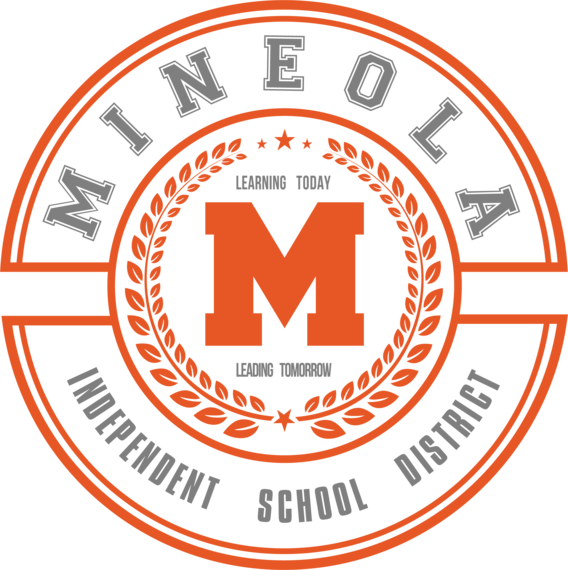Dyslexia and Related Disorders
Texas has a long history of supporting the fundamental skill of reading. This history includes a focus on early identification and intervention for students with dyslexia. This page includes resources to assist in identifying and providing services for students with dyslexia and related disorders in Texas schools.
Mineola ISD is committed to providing every student with tailored intervention and support that allows them to excel with dyslexia.
What is Dyslexia?
Dyslexia as defined by the Texas Education Code (TEC) 38.003
TEC §38.003 defines dyslexia and related disorders in the following way: “Dyslexia” means a disorder of constitutional origin manifested by a difficulty in learning to read, write, or spell, despite conventional instruction, adequate intelligence, and sociocultural opportunity. “Related disorders” include disorders similar to or related to dyslexia, such as developmental auditory imperception, dysphasia, specific developmental dyslexia, developmental dysgraphia, and developmental spelling disability. (The Dyslexia Handbook, Update 2024, p.7).
Dyslexia as defined by the International Dyslexia Association (IDA)
Dyslexia is a specific learning disability that is neurobiological in origin. It is characterized by difficulties with accurate and/or fluent word recognition and by poor spelling and decoding abilities. These difficulties typically result from a deficit in the phonological component of language that is often unexpected in relation to other cognitive abilities and the provision of effective classroom instruction. Secondary consequences may include problems in reading comprehension and reduced reading experience that can impede growth of vocabulary and background knowledge.
Characteristics of Dyslexia:
Primary characteristics include difficulties:
• Learning the sounds letters make
• Reading words in isolation or reading unknown words
• Reading smoothly with enough speed and accuracy to comprehend
• Spelling
Secondary characteristics may include difficulty:
• Expressing ideas or concepts in writing
• Understanding what is read
Students with dyslexia may also present with additional difficulties and/ or disorders, including attention deficit hyperactivity disorder (ADHD), speech and language disorders, and/or other academic needs
Dyslexia Handbooks
The Texas Education Agency's (TEA) Dyslexia Handbook is the primary source of dyslexia school law in Texas. It provides guidelines for school districts, teachers, students, parents, and guardians on how to identify, evaluate, instruct, and accommodate students with dyslexia.
Dyslexia Risk Factors
Screening and Referral Process
Special Education Process
Our Program
Every child is unique and the impact of dyslexia can vary from person to person. We provide students with the tools they need to be successful by:
utilizing the MTA dyslexia program
having highly qualified dyslexia teachers providing instruction
working together with families, teachers, and educators to provide tailored dyslexia services.
MTA Dyslexia Program
MULTISENSORY TEACHING APPROACH (MTA) is a language arts program specifically designed for students experiencing serious reading difficulty, including dyslexia. It is based on Orton-Gillingham philosophy and techniques, and follows the introduction sequence of Alphabetic Phonics. MTA is a comprehensive language arts program addressing the areas of alphabet/dictionary skills, reading, reading comprehension, cursive handwriting, and spelling. Guided discovery and multisensory techniques are utilized for introducing, reviewing, and practicing skills in the curriculum areas listed above. These techniques involve students as active participants in their own learning process. Criterion-referenced Mastery Checks are administered periodically throughout the curriculum. MTA addresses all descriptors of appropriate dyslexia programs as described by the International Dyslexia Association, and those in the Texas Dyslexia Procedures. More information can be found at: https://mtspublications.com/about-mts/.
Principles of Effective Intervention and Instruction
Instructional Accommodations
Progress Reporting
Staff Qualifications
